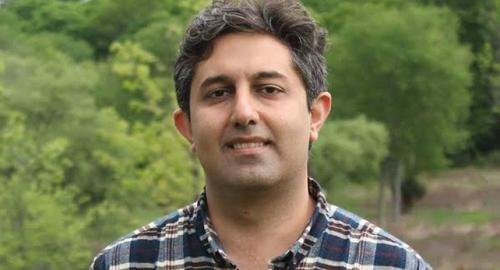Former president Mohammad Khatami recently sparked fresh debate on the future of Iran, announcing that he supported a federalist form of government.
The controversial comments led to a flurry of responses from activists, pundits, and political analysts both within Iran and among the diaspora.
In IranWire’s new series on federalism, we ask activists, analysts, lawyers, and academics to give their views on federalism and whether it could be a future for Iranian politics and society.
Could it be the pathway for ushering in greater freedoms, or will it sow greater divisions in an already fragmented country? What would it mean for Iran’s ethnic and religious minorities, and does it go against the principles of equality so many Iranians want to see in their country?
IranWire invites academics and specialists from different countries – particularly those who have dealt with federalism in countries such as Spain, Canada, Belgium, and the US – to contribute to the series. The articles will be published in both English and Persian.
Shahin Sadeghzadeh Milani, a lawyer and human rights activist who lives in the US, opposes the establishment of a federal system in Iran. We asked him to explain his reasons.
You are among those who believe a federal system is not right for Iran. What characteristics of the federal system have convinced you of this?
I believe that a federal system is not right for Iran because groups and political camps that advocate federalism wish to establish government entities based on language and ethnicity, and naturally this is not a good or defensible idea.
Advocates of federalism in Iran say that this view reduces the system to one based on ethnicity, while in practice it can be implemented in many different forms. Is this criticism is valid?
Look at the reality and see who the groups are who support the idea of a federalist Iran. What are their ideological backgrounds and what are they are after?
These parties talk about the right of self-determination for different nationalities, but what they really mean by “nationalities” are ethnic factions who speak a specific language.
They believe that a group of citizens has a paramount right to rule over a region because they speak a specific language, have a specific culture, and belong to a specific ethnicity.
This point of view is contrary to the idea that all Iranian citizens are equal. For instance, they say that citizens who speak Azeri Turkish have a paramount right to the territory of Tabriz or Azerbaijan. This is a right that other Iranian citizens, whether Persian-speaking or Kurd or Baluch or Turkman, and so on, do not have.
But haven’t some citizens come to believe that they have been relegated to second-class citizens by the political power structure in place? Could a type of federalism not strengthen their attachment to Iran and their status as equal citizens?
There is no denying that in Iran we face the problem of inequality among citizens. Under the Islamic Republic, religious discrimination has been institutionalized, and the Sunnis – many of whom belong to minority ethnic groups as well – are discriminated against.
There is also inequality between the center and the periphery, and Iran’s peripheral regions are economically disadvantaged. But the point is that the solution to these problems is not what these groups are after.
The solution is establishing and consolidating a secular democratic system in which all citizens have an equal stake in deciding the policies of their country. In such a system, the vote of each citizen is respected, all people can choose their representatives through free elections, and all citizens enjoy equal rights in running the country.
Separating citizens on the basis of language and ethnicity, and saying that a group has a paramount right to a piece of land because they speak a different language, would trigger ethnic tensions. It could even create environmental conflicts, such as over water resources.
In a secular democracy, what would be wrong in establishing autonomous or federal units based on territorial considerations, rather than those based on ethnic or language divides?
Here we have to deal with two issues. One is the issue of decentralization, meaning that certain questions would be decided at a provincial or local level. For example, the decision to build a road or to teach the history of a region in schools, and so on, could be delegated to the province, to the city, or to another administrative division.
In this scenario, we have a national sovereign power that might decide to delegate some of its powers to provinces or cities. This is different from delegating such powers beforehand.
Besides the issue of double sovereignty, in a federal system we also have the problem of legislation. For a province to have its own parliament to legislate, we are required to create legislatures, judiciaries, and executives in all provinces. We would have more than 30 legislative systems, and this goes against progress anywhere in the world.
For instance, the European Union has been trying to remove borders to facilitate travel, commerce, investment, and communications among citizens of various European countries. By creating a series of smaller political units in Iran, and by having each province legislate its own laws, we would be creating more borders.
Should we stay away from federalism even if citizens’ feeling of attachment to Iran is strengthened through the distribution of power to federal units in a secular democracy?
I am not sure that a federal system would strengthen the feeling of being Iranian. A clear example is Spain and Catalonia. Catalonia has a local government within a federal framework and is autonomous to a large degree, but it still wants to secede from Spain.
Even in Canada’s province of Quebec, secessionism persists even though the Canadian system is a democracy and the people of Quebec can easily participate in the national political process.
Politicizing ethnic identities would create problems in the long run. All Iranian citizens might have their own ethnic identity or language, but when they define themselves politically as Kurds, Turks, Baluchis, etc., it would lead to conflict between these distinct political identities.
In such a situation, conflicts over towns, land, and natural resources quickly turn into wellsprings of political tension. One example was the creation of the Turkish Caucus, the members of which ranged from the reformist Masoud Pezeshkian to the hardline conservatist Nader Ghazipour.
Are you against federalism in general or do you simply believe that this political system is not right for Iran?
In the US, a number of independent political entities joined a union to create a bigger political entity. They turned over some of their powers to the federal government and kept others for themselves. In this case, ethnicity played no role in creating or shaping the federal government.
At the same time, besides its many merits, the American federal system has flaws and suffers from certain inequalities. For instance, the state of California is rich while Mississippi is poor. In California, a state citizen can pay low tuition fees to study in top universities such as UCLA or Berkeley, but if a citizen of Mississippi wants to enroll he must pay three times the amount.
If we establish such a system in Iran, the same example might apply to universities in Tehran vis-à-vis students who come from underprivileged places. It would be much more difficult and costly for them to get ahead.
So you are against decentralization policies regardless of whether they are implemented under the name of federalism or not?
Considering the current conditions in Iran, dividing power between the central government and local governments could lead to chaos and disorder, no matter under what name it is done.
When the situation is stable, and when dividing a province is not likely to lead to conflict and bloodshed, then we can give more consideration to the decentralization of power.
visit the accountability section
In this section of Iran Wire, you can contact the officials and launch your campaign for various problems

























comments